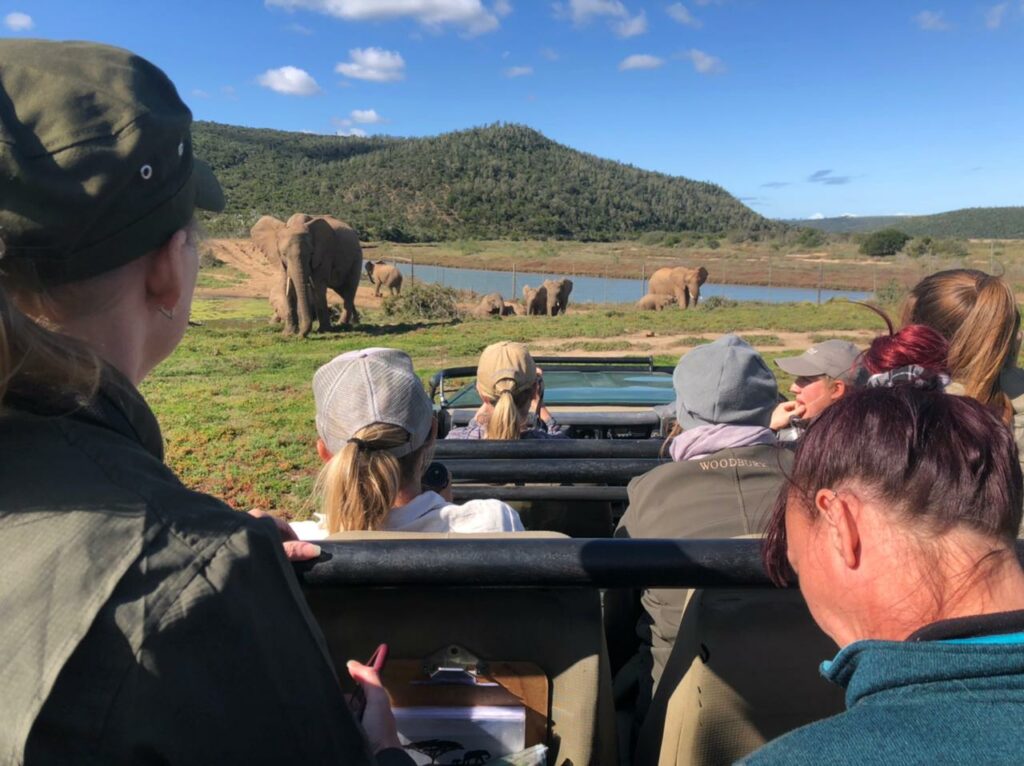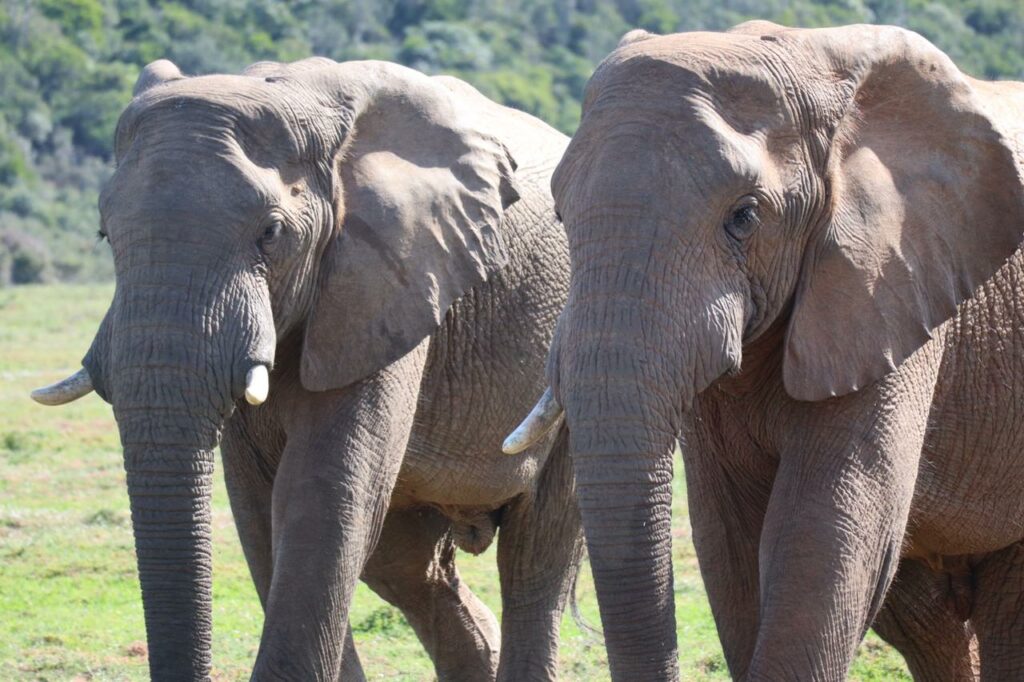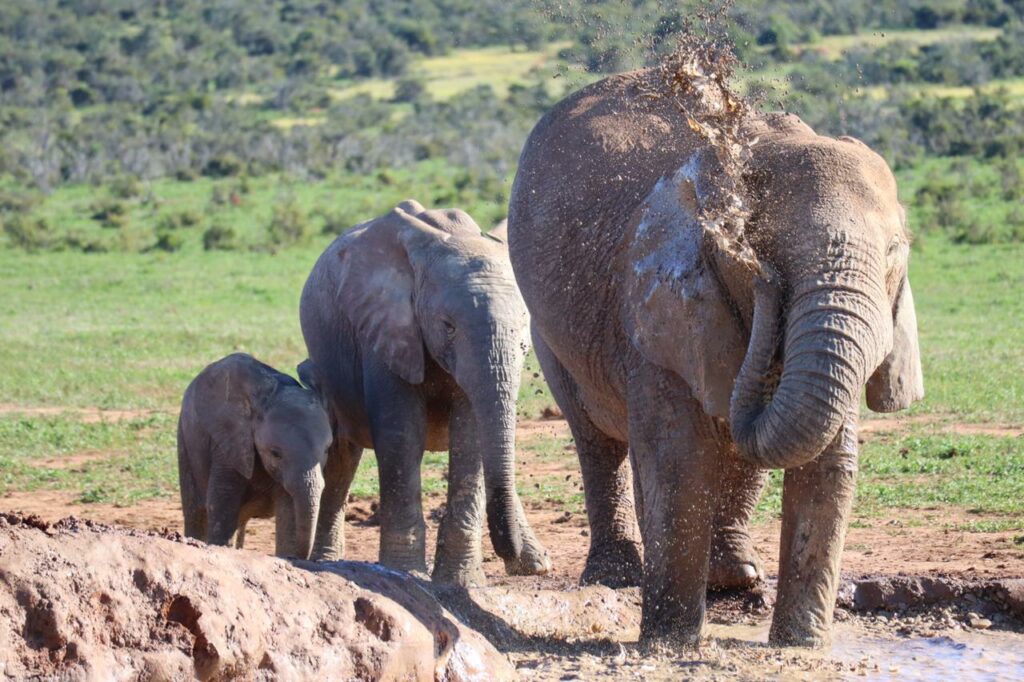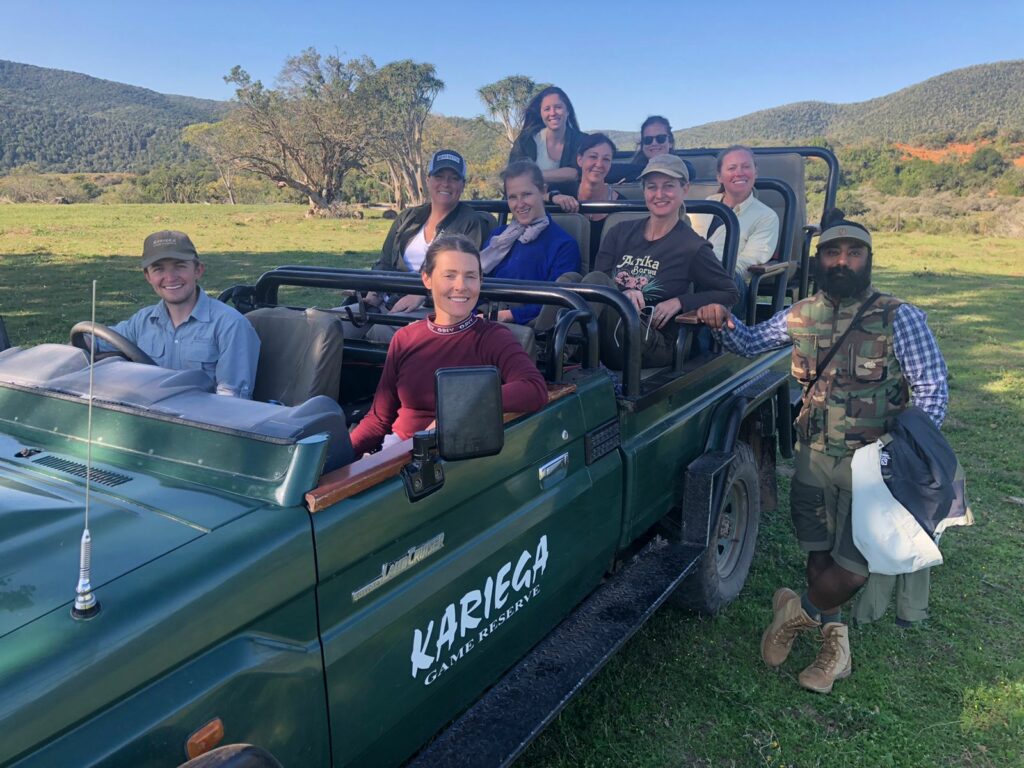Happy World Elephant Day!
On World Elephant Day, from BTEH’s Elephant Field Station in South Africa, we want to share with you our story of six pioneer elephants blazing a trail for the future of wildlife conservation in South Africa. Through months of identification and behavioural research, BTEH has identified three bull elephants and three cows to spearhead a migration tracking program, capturing data to enhance the future wellbeing of wild elephants in South Africa. The purpose of this study is to assess the well-being of elephants before and after range expansion, to promote a conservation approach in which elephants can roam at will, living in harmony with their local communities.
Written by Julie, BTEH Elephant Researcher 2022
Elephant collaring is a process that allows us to capture real time data through the Internet of Things, using LoRa technology. Each of the elephants were fitted with this cutting-edge technology which sends data back to the Earth Ranger tracking platform, providing continual updates on the six collared elephants from three different herds, including information on movements, interaction between elephants and behaviors. The collars are non-invasive, robustly designed to stand the harsh conditions of the African wilderness and will last 4-6 years to allow us to monitor elephant well-being over time.

Re-imagining the future of elephants in the wild
With seventeen percent of land under conservation, and as one of the most biodiverse countries in the world, South Africa is at the vanguard of re-inventing the conservation landscape, so where else could be better placed for BTEH to run this groundbreaking research on the future of wild elephants?

In tandem with the leadership of Kariega Game Reserve in the Eastern Cape, Dr. William Fowlds and the University of KwaZulu-Natal, BTEH has teamed up with Abri voor Dieren Foundation to secure funding for this novel research. We aim to deliver the evidence base needed to demonstrate that elephants and all stakeholders engaged in dropping fences, including local communities, will benefit from the long-term value of enhancing biodiverse ecosystems, allowing people and animals to live together in harmony. This research will test the hypothesis that, by re-imagining the role of protected areas in line with sustainable rural development, we can truly create untold value securing a more equitable and resilient ‘bio- socio-economic’ model.

Next steps
The short term plan? To drop fences within a single reserve to see how the elephants change their patterns of movement, how their well-being increases, and how different herds interact when they first meet and start sharing larger habitat. The long term plan? To increase connectivity for at least 30km along the Bushman’s River, expanding the range for elephant movements, allowing them to migrate as they would have done before the modern approach to conservation led to contained protection.
We can’t wait to share our insights and invite you to stay tuned for the next instalment.
Julie, BTEH Elephant Researcher 2022
Draft White Paper on the Conservation and Sustainable use of South Africa’s Biodiversity was issued for public comment on July 11 2022. (Minister of Forestry, Fisheries and the Environment. Barbara Creecy)


Special thanks to
Bring The Elephant Home thanks specially those who helped make this possible: Dr. William Fowlds Wildlife Veterinarian, Vets Gone Wild, Kariega Foundation, our sponsor Abri voor Dieren Foundation, African Wildlife Tracking and our elephant research volunteers.
